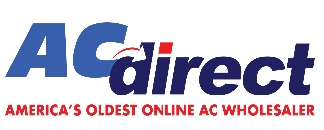What Are the Most Energy Efficient Air Conditioners for 2025?
-
 By
Michael Haines
By
Michael Haines
- Jul 2, 2025

Hi, I'm Michael Haines. If your AC was installed before 2015, there’s a good chance it’s a power hog. It may still run, but it’s probably costing you a fortune. Efficiency standards have changed dramatically, especially since SEER2 replaced SEER as the rating system in 2023.
In 2025, energy efficiency is about more than just a number on a yellow sticker. It’s about how the unit operates across different load conditions, how well it handles humidity, and how much energy it uses while keeping you comfortable.
A high-efficiency AC system runs at lower speeds more often, rather than cycling on and off. This keeps your house cooler and drier while avoiding the power spikes that come with older single-stage systems.
What Counts as Energy Efficient in 2025?
It’s not just the compressor, though, that helps. True efficiency comes from the whole package. Variable-speed blowers, inverter-driven compressors, and proper refrigerant charge all make a huge difference.
Airflow matters too. A system that’s oversized or fighting against blocked vents won’t perform efficiently, no matter how good the equipment is. Your ductwork, thermostat, and insulation all factor into the total efficiency of your cooling setup.
And if you’re still running your thermostat like it’s 1998, it’s time to upgrade. Smart thermostats can automate setpoints, reduce runtime, and work with your unit instead of against it.
Key Takeaways
-
SEER2 ratings have replaced SEER and offer a more accurate picture of performance
-
The most energy efficient air conditioners in 2025 use inverter technology and variable-speed compressors
-
Proper sizing and smart thermostat controls are just as important as the unit itself
Looking for real savings? You’ll find the top-rated energy efficient air conditioners in stock and ready to ship, direct from the source.
Central AC vs. Mini-Split: Which Is More Efficient?
Mini-splits tend to win when it comes to raw energy savings, especially in homes without existing ductwork. Because they avoid duct losses entirely, they can hit efficiency levels that central air systems rarely touch.
But that doesn’t mean central AC is inefficient. In fact, a properly installed central system with sealed ducts and zoning can rival a ductless system. It all depends on your home layout, usage patterns, and system design.
The newest central air conditioners use two-stage and variable-speed compressors that modulate cooling levels based on the demand. That means fewer temperature swings, longer run times at lower power, and more stable humidity control.
Why SEER2 Changed the Game
SEER2 is the updated national standard as of 2023, and it’s more realistic. It simulates real-world conditions and measures how the system performs under pressure—not just in a lab.
Older units with a SEER rating of 10 or 12 might seem close to a new SEER2 14.3 unit, but they’re not. In real-world performance, a 14.3 SEER2 system runs circles around those older models.
When shopping for energy efficient air conditioners, anything above SEER2 16 is considered excellent. Systems in the SEER2 18+ range will often qualify for state or utility rebates, which can knock hundreds off your total install cost.
Real-World Cost Savings Over Time
The numbers speak for themselves. If you replace a 10 SEER system with a SEER2 18 model, your cooling costs could drop by 40 percent or more. Over a 10-year span, that can mean several thousand dollars saved.
But efficiency isn’t just about the power bill. Higher-efficiency systems tend to be quieter, last longer, and maintain comfort better. You’re not just buying a product, you’re buying a better living experience.
When factoring in rebates and seasonal energy savings, the more efficient model often pays for itself in under five years. That’s not hype. That’s simple math.
What to Look for When You Shop
Start by checking the SEER2 rating, but don’t stop there. Look for features like inverter technology, two-stage cooling, and compatibility with programmable thermostats.
If you’re shopping central AC, make sure your ducts are sized and sealed properly. If you’re going ductless, choose a mini-split with multi-zone support if you need to cool more than one area.
Also, make sure the unit is from a brand you can trust. ACiQ and Goodman are reliable names with strong warranties, and they’re among the most popular lines we carry because they strike the right balance between efficiency and value.
And yes—these are all available direct to the public without the contractor markup.
Best Use Cases for High-Efficiency Systems
High-efficiency AC units make the most sense in climates with long, hot summers. If you're running your AC for more than 6 months out of the year, you’ll see fast returns on a better SEER2 rating.
They’re also great for large homes, homes with poor insulation, or spaces with a lot of sun exposure. Even if your square footage isn’t massive, your cooling needs might be, and that's where these systems shine.
Finally, if you’ve got high power bills and you’re looking to cut costs, stepping up to a high-efficiency unit is one of the easiest ways to do it without sacrificing comfort.
Final Thoughts
The most energy efficient air conditioners in 2025 don’t just lower your power bill. They improve your home comfort, reduce wear on components, and keep your space cooler with less effort.
Whether you're replacing an old central system or upgrading to a modern mini-split, it pays to focus on efficiency. Look for systems that offer variable-speed technology, solid SEER2 ratings, and compatibility with smart controls.
And when you’re ready to upgrade, we’ve got the best models in stock and ready to ship. You’ll find honest specs, wholesale pricing, and a team ready to help you choose the right system.
Start here: energy efficient air conditioners
FAQ
What is the most energy efficient type of air conditioner?
Ductless mini-splits are typically the most efficient, but high-SEER2 central systems also perform very well when properly installed.
What SEER2 rating should I look for?
SEER2 16 or higher is excellent. Anything above SEER2 18 can qualify for rebates and deliver big long-term savings.
Are energy efficient AC units worth the extra cost?
Yes. The upfront investment is offset by lower energy bills, better humidity control, and often longer system life.
How much can I save with a more efficient system?
Switching from an old 10 SEER unit to a SEER2 18 system can cut cooling costs by up to 40 percent.
Do energy efficient systems run all day?
Some do, but at lower speeds. That’s actually better for comfort and efficiency compared to short, frequent cycles.

 and now, NASCAR Racing Sponsor
and now, NASCAR Racing Sponsor








